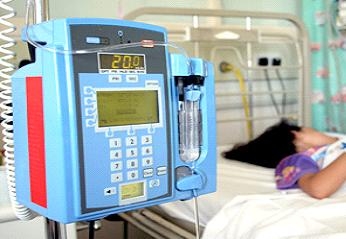Diabetic Ketoacidosis Symptoms, Causes, Diagnosis and Treatment

What Is Diabetic Ketoacidosis?
Very often, diabetes patients suffer from a life-threatening complication, diabetic ketoacidosis.
It is a multifaceted, disordered metabolic state marked by ketonuria, ketoacidosis and hyperglycemia.
What Causes Diabetic Ketoacidosis?
Our body consists of insulin which basically assists sugar or glucose to enter the cells. Researchers believe that the lack of insulin urge the body to break down fats instead of glucose since it is considered to be an alternate source of fuel. This results in the production of poisonous acids entering the bloodstream commonly known as ketones and this eventually leads to diabetic ketoacidosis if the treatment is delayed. Insulin insufficiency may be caused by an illness that creates hormones that act against insulin or if there is an issue with the insulin therapy.
What Are The Symptoms Of Diabetic Ketoacidosis?
The symptoms of diabetic ketoacidosis show up pretty fast. These may include:
- Confusion
- Abdominal pain
- Weakness
- Urination at short intervals
- Vomiting
- Increased sugar level in blood and ketone level in urine
- Headache
- Muscle aches
- Dryness
These are some of the symptoms that a victim might suffer from but since many of these symptoms are found in other diseases and disorders too, it is highly recommended to confirm the presence of diabetic ketoacidosis before commencing any medication or treatment.
What Are The Risk Factors Of Having Diabetic Ketoacidosis?
If a person has the following characteristics, he/she might have a higher probability of suffering from diabetic ketoacidosis:
- A person has type-1 diabetes.
- A person does not consume sufficient insulin dose.
- A person is below 19 years of age.
What Are The Possible Complications In Diabetic Ketoacidosis?
If left untreated, diabetic ketoacidosis might worsen and result in:
- Heart attack.
- Kidney failure.
- Build up of fluid in brain.
How Is Diabetic Ketoacidosis Diagniosed?
Medical experts use certain test results to confirm whether a person is suffering from diabetic ketoacidosis or not. Some of them are:
- Blood acidity.
- Ketone level.
- Sugar level.
- Chest X-ray.
- Electrocardiogram.
- Urinalysis.
After going through some of these tests, doctors are able to accurately diagnose diabetic ketoacidosis.
How Is Diabetic Ketoacidosis Treated?
Immediate treatment is required as soon as diabetic ketoacidosis is diagnosed. Treatments include:
- Insulin therapy through a vein to reverse the effects of diabetic ketoacidosis.
- Fluid replacement to rehydrate fluids lost due to excess urination. This is either done orally or through veins.
- Electrolyte replacement.
These treatments are required at an early stage of diabetic ketoacidosis but doctors may also require victims to go through other treatments even after it is cured.
Is Diabetic Ketoacidosis Preventable?
Diabetic ketoacidosis can be prevented through several strategies including:
- Regularly checking your blood sugar and ketone level and reacting immediately if it is slightly high or low.
- Accurately adjusting the insulin dosage.
- Following your doctor’s prescribed precautions thoroughly.
By : Natural Health News




